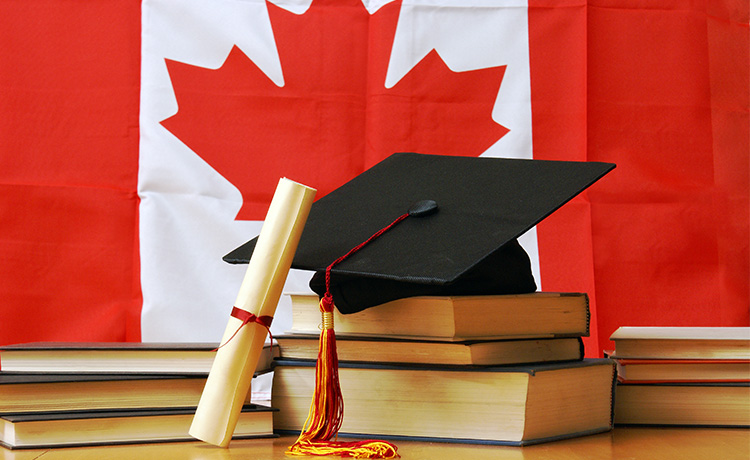Study in canada
Ranked amongst the top 10 countries since 2004 in the Quality of Life Index by the United Nations, Canada is known for its excellent education institutions, multiplicity of top quality education programs in various streams and an innovative economy that welcomes international students with open arms.


WHY STUDY IN CANADA ?
With affordable tuition fees, quality institutions, post-study work and immigration options and welcoming people, it’s no surprise that Canada is quickly becoming a leading destination for international students. Canada hosts more than 250,000 international students and has experienced a huge increase in demand from overseas students in recent years.
Benefits
- Affordable and Quality Education
- Open the doors to your dream career
- Immigration Possibilities
- Get great value for money


Country's Facts
- Capital : Ottawa
- Language : English, French
- Official Currency : Canadian Dollar (CAD)
- Climate : Although known for a diversity of seasons and temperatures, and even some snow, some parts of Canada, specifically in British Columbia have very mild winters.
- Time Diff. : Ottawa 10 hrs 30 min behind IST
Education system in Canada


The education system in Canada is divided into:
- Certificate level, generally for a year
- Diploma level, for one or two years
- Advanced Diploma, generally two or three-year programs
- Bachelor degrees, awarded after four years of full-time study
- Post-graduate Diplomas/Certificates, for one or two years of study
- Master’s degrees, available after a bachelor degree to excel in a certain subject, for one to two years
- Doctorate or PhD, generally four to seven years
Intake seasons
The major intakes are Fall (September) and Spring (January) but many institutions have Summer intakes (May or June) as well.
Entry requirements
Admissions test requirements vary from institution to institution. Most institutions request for an English proficiency test like the IELTS. The other standardized tests that you may have to take like GMAT, GRE, SAT and the like are dependent on the program you are applying for.
Working while studying in Canada
As of June, 2014, students no longer needed to apply for a separate work visa to work off-campus, and are eligible to work as soon as their program of study begins.
International graduates from Canadian higher education institutions also have the opportunity to work in Canada for up to three years following the completion of their program under the Post-Graduation Work Permit Program (PGWPP)
Cost of Education
Tuition fees for Canadian institutions vary from course to course and institution to institution. On an average, a student needs to pay a minimum of C$8,000 (approx) to as high as C$12,000


Scholarships and awards for international students are available with exceptional results at various Canadian Institutions. The amount and type of award varies from one institution to another. Obtaining a scholarship is competitive and applications must be made directly to each school.
APPLYING FOR VISA
After securing admission into the University one must start with the visa formalities. Master’s Academy provides wide range of services for studying in Canada. Applications and documentation must be submitted to the nearest Master’s office. For More information, Contact Master’s Academy.
